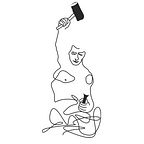Conversations on First Dates
Conversations on first dates can be a very intimidating experience. No one wants to be boring, and all of us want to make a good first impression. Even those of us who may be talkative by nature, sometimes find ourselves stumbling over words, we torture ourselves with what to say and how best to say it, and to our convenience, stress makes us far more forgetful than usual.
The eloquent, funny, and impressionable people we want to become is imminently lost as we struggle to muster coherent sentences together: “So what do you do for a living?” “Sounds interesting, you like it?” “Oh, so you like travelling? So do I”.
This experience is of course, normal; yet, one cannot help but think that if the purpose of a date is to reveal who we are to one another, we’re capable of doing far better. To this end, we can turn to Ancient Greek philosopher Socrates for sage advice.
As demonstrated through his student Plato and his famous dialogues, Socrates held that we could improve the quality of our conversations if our intention is to reach understanding, rather than make trivial commentaries, or proclaim what facts we know and how much we know of it. We can use some of these lessons to arm us during our next romantic enterprise; here’s some practical advice you may want to consider:
1. Ask why
During first dates, we love to discuss the usual subjects: what countries we’ve recently visited, our pet peeves, what our favourite movies are, the jobs we have, our hopes for the future. But Socrates holds that a far more revelatory conversation can take place when we disclose why. Though it may sound trivial, describing why we think Tarantino’s Pulp Fiction is incomparably cool, or recollecting why the galleries of Piazza de Signoria in Florence has left an enduring influence over us, exposes our values more vividly. Rather than reciting a list of our interests, we can account for who we are by painting more colorfully, our unique beliefs about the world.
2. Know thyself
Sometimes, even simple questions about our lives and personalities can be tricker than might expect. One reason perhaps might be that we don’t know ourselves as well as we think, requiring us to do a little more musing alone. Rather than improvising at the dinner table, we can take the advice of Socrates: Know thyself. Whenever we have time to spare, we can ask: Am I really happy at work? Why am I always so short-tempered? What does it say about me that I am so fascinated by physics? We speak at length about the things we are passionate about — provided we know them well. Better acquainting ourselves with our personalities can help us become far more confident romantic conversationalists.
3. Be an active participant
Being an active participant in conversation requires more than just listening intently. For instance, we enjoy listening to many of our favourite talk show hosts because of how skillful they are in trying to understand the person they are interviewing. They often ask: what do you mean by that? Is this always the case? How do you know this? By being active participants, they are unwittingly embracing the tenets of Socratic Inquiry, which we too, can use to our advantage.
* * *
Conversations when dating doesn’t need to be an intimidating experience. If we are willing to embrace some of the lessons of Socrates, perhaps we too, can be the more confident and stimulating romantic conversationalists we hope to be.
By Sally Michael
Sally is an Architect and the Intellectual Development Manager at Novel Philosophy Academy
